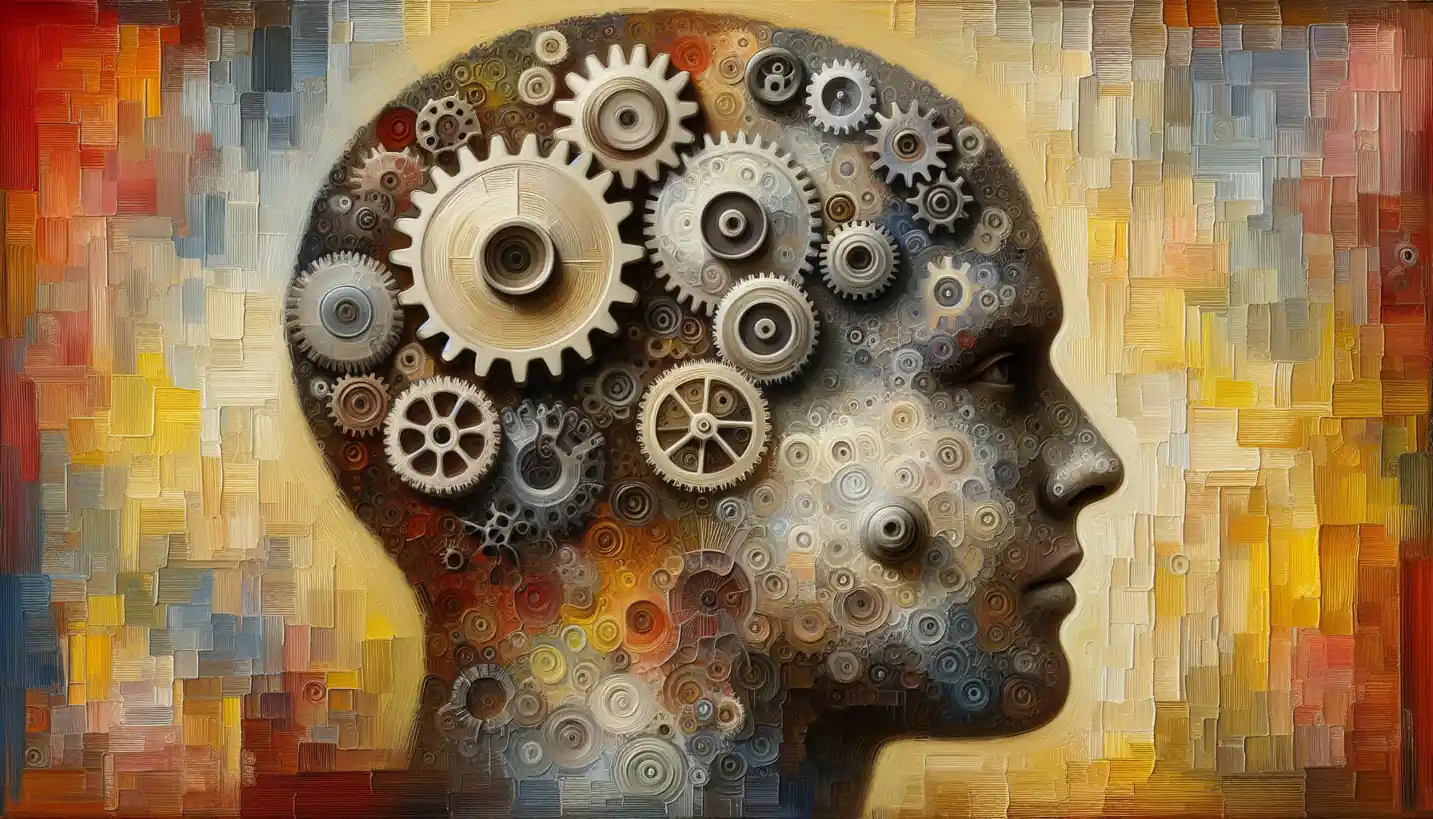· Psychology · 4 min read
Theory of Mind in Animals: Understanding Consciousness Beyond Humans
Theory of mind in animals explores whether animals understand the thoughts of others. Unpack this fascinating area that challenges our perception of consciousness.

Once upon a time in the lush expanse of a forest, a group of chimpanzees huddled together, engaging in what seemed like a community meeting. Though it might sound like a scene from a children’s book, it’s actually a glimpse into the fascinating exploration of the “Theory of Mind” in animals, a concept that sheds light on the mental worlds of creatures beyond our own.
What is Theory of Mind?
Theory of Mind (ToM) is a psychological concept that refers to the ability of an individual to understand that others have thoughts, feelings, desires, and intentions that might be different from their own. It’s like the superpower of stepping into someone else’s shoes. For instance, when we look at someone who appears sad, we can often guess that they might have had a bad day or received sad news. This ability is crucial for social interaction and empathy.
A Peek into Animal Minds
While humans are certainly adept at this, the question of whether animals possess a Theory of Mind has fascinated scientists for decades. Imagine watching a raven hiding a shiny piece of metal before another raven can see it. This behavior might suggest the first raven understands that the other has a mind capable of wanting that treasure, indicating some level of ToM.
Primate Insights
Chimpanzees are among the most studied animals in this context. Researchers have observed that chimps display behaviors that suggest an understanding of the mental states of others. For example, in certain experiments, a chimpanzee might point to a hidden piece of fruit not accessible by another chimp, showing awareness that the other doesn’t know where it is unless helped.
Birds with a Brainy Side
Birds like crows and ravens have shown surprising mental agility. If a raven knows it is being watched while hiding food, it might return later to move it. This behavior suggests the raven understands the perspective of the observer, displaying their cunning intellect and possible ToM.
The Controversy and Challenges
Determining whether animals truly have a Theory of Mind is tricky. The main challenge is proving beyond doubt what an animal understands about another’s mind rather than just responding to simple cues. Critics often argue whether animals have a true understanding like humans or if they are just reacting based on learned behavioral patterns.
Clever Experiments
To tackle these challenges, scientists design clever experiments. For instance, researchers might hide food in a place visible to one animal but hidden from another. Then, they observe if the animal that knows where the food is can guide the other animal, suggesting some level of awareness of the other’s knowledge.
The Stories Within the Animal Kingdom
The animal world is full of intriguing stories that hint at the existence of a Theory of Mind. Elephants, for example, are known for their strong social bonds and care for their dead; they seem to express complex emotions and awareness of others’ feelings.
Similarly, dolphins exhibit remarkable empathy and problem-solving skills. In some reported cases, dolphins have helped injured members, suggesting they understand when another is in distress.
Why Does It Matter?
Understanding whether animals possess a Theory of Mind enhances our appreciation of their cognitive abilities and emotional lives. It pushes us to reconsider how we view and interact with animals, influencing conservation efforts and ethical considerations. Recognizing them as beings with complex inner worlds may lead to more humane treatment and policies.
The Future of Animal Consciousness Research
There’s still much to learn about the minds of animals. Scientists are continuously exploring new methodologies and technologies to delve deeper into this mystery. Observations and experiments are becoming more sophisticated, using tools like brain imaging to better understand animal cognition.
One fascinating frontier is using artificial intelligence to analyze animal behavior, potentially revealing patterns we might not notice. These advancements might one day answer whether animals think about what others think—and how similar they might be to us.
Embracing Curiosity and Wonder
The concept of Theory of Mind in animals invites us to embrace the curiosity and wonder that drive scientific exploration. Whether it’s through observing a clever corvid or studying the social games of primates, every discovery offers a glimpse into a world that’s both familiar and mysterious.
As we stand on the edge of understanding, the question remains: just how much do animals know, and what can they teach us about the mind itself? These questions ignite our imagination and expand our view of the conscious experience beyond the human perspective.
In the end, the exploration of Theory of Mind in animals is not just about understanding them better; it’s about understanding what it means to be aware, compassionate, and connected in this vast and intricate web of life.


